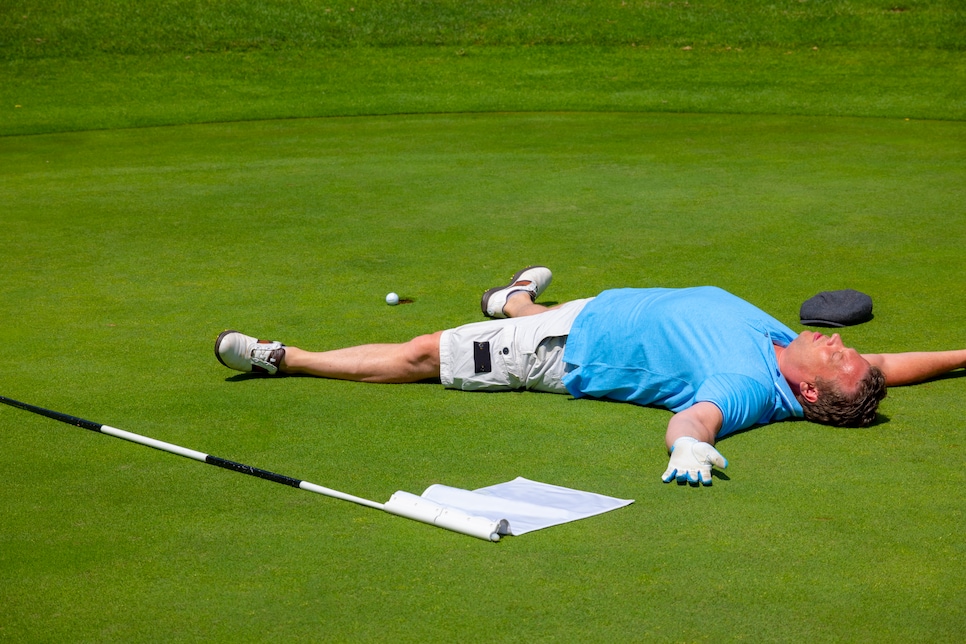[PHOTO: Juanmonino]
It is estimated that 5 percent of Australians have sleep apnea, and more than half of those are undiagnosed. Those people triple their risk of death. Did that get a reaction out of you? No?
What if we told you that by not getting enough sleep each night, you’re not only inviting health problems, you’re hurting your golf game. Now we’ve got your attention!
That’s what a study by sleep-medicine specialists Dr. Marc L. Benton and Neil Friedman concluded. About 10 years ago, they monitored the golf games of players who were being treated for obstructive sleep-apnea syndrome (a repetitive blockage of the upper airway that makes breathing and uninterrupted sleep difficult). The study compared them to a control group of golfers who didn’t have sleep apnea.

After posting 20 rounds during a six-month period, the golfers in the control group saw no significant change to their handicaps. But the handicaps of golfers who were treated for sleep apnea dropped by an average of 11.3 percent. Among that group, the golfers who started the program with a handicap lower than 12 saw their numbers drop by an average of 31.5 percent. Usually, only 3 percent of all golfers with registered handicaps improve by three shots or more during a 12-month period.
“It was a novel study, and an important one if it gets more people to get treated for disorders such as sleep apnea,” says Dr Nathaniel Watson, co-director of the University of Washington’s Sleep Center (and an avid golfer). “The biggest impact is mental,” he says. “Course management, reading greens, controlling emotion—sleep impairment hurts cognitive function.”
People often think of being fit as exercising and eating right, but sleep is the third part of the formula, says Dr Timothy Morgenthaler, former president of the American Academy of Sleep Medicine. “You can’t be fit if you’re sleep-deprived,” he says. “And if you’re getting up before dawn to go play golf on only a few hours’ rest, you’re going to be sleep-deprived. It’s going to haunt you the rest of the day.”
Apnea is considered a serious condition that is often treated medically using a machine that keeps the upper airway unblocked with continuous positive pressure. Chronic snoring not linked to apnea, however, isn’t treated nearly as seriously, but studies have shown it also negatively impacts health and athletic performance.
To combat it, experts say to avoid caffeine after 5pm, take melatonin, avoid looking at your smartphone in bed, sleep in a cool, dark room and sleep on your side as a way to prevent a collapse of the upper airway. It’s this collapse that leads to snoring (and a punch in the arm from your spouse). However, if you struggle to breathe through your nose, the best position might be on your back, which helps drain the nasal passages. Gross, but it works.



